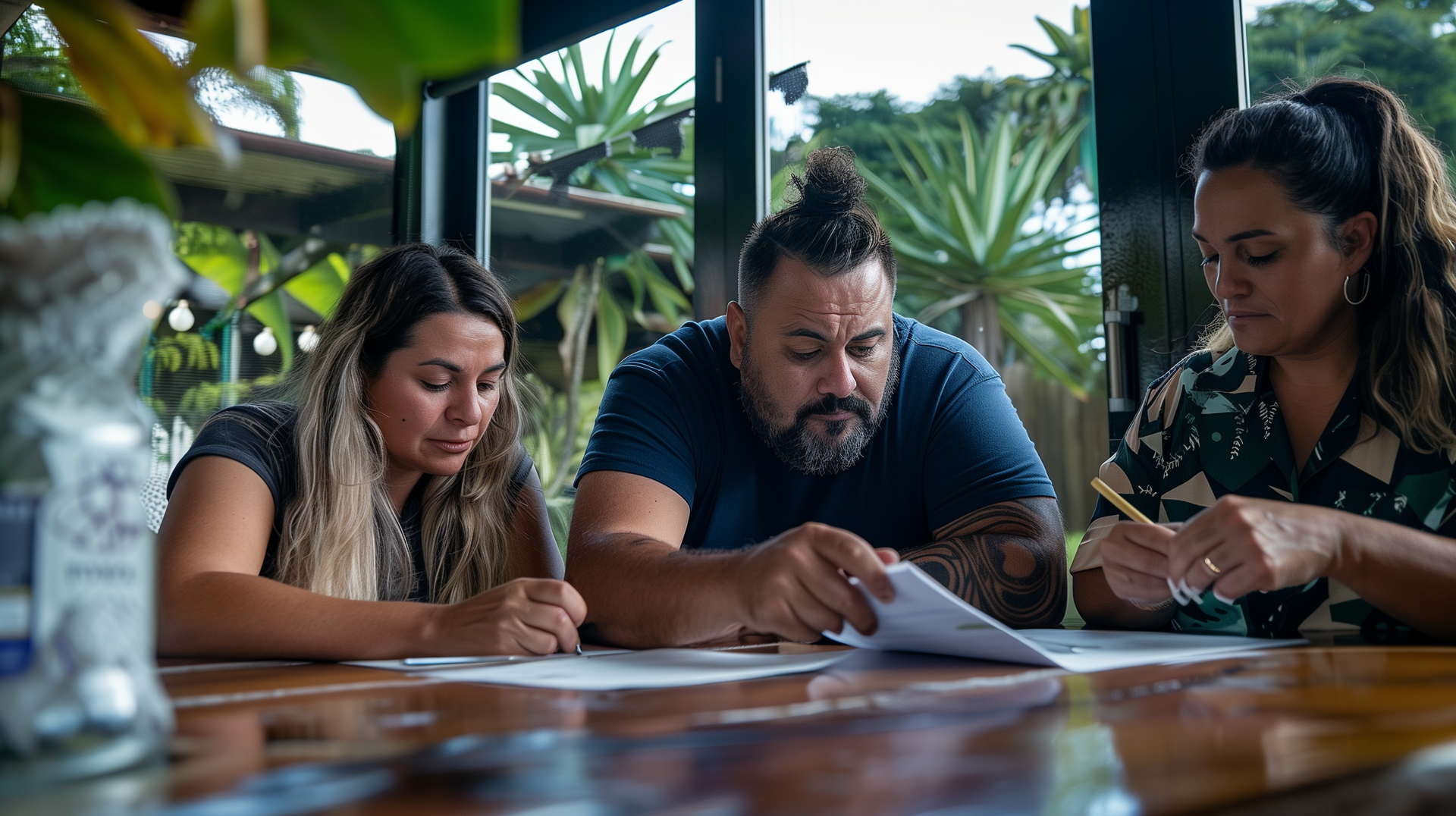News

by Polina Kozlova
•
5 February 2025
On 20 December 2024, Supreme Court of New Zealand delivered a decision in the case of Cooper v Pinney, addressing the extent to which powers held by a trustee over a family trust can constitute "property" under the Property (Relationships) Act 1976 (PRA). Our legal experts take a look at what that case means for you.

by Polina Kozlova
•
16 November 2024
Law firms in New Zealand often receive inquiries from individuals asking for a copy of their own Will, a the Will of a spouse or other person. Many are surprised to learn that they cannot simply access another person’s Will without that person's written consent. While a Will-maker is alive, they retain full control over their Will. Only the Will-maker can authorize a copy to be released or accessed. After the Will-maker passes away, this authority shifts to the executor(s) named in the Will. Only the executor(s) can approve the release or copying of the Will. There is no formal "reading of the Will” in New Zealand. Instead, the executor(s) may choose to send copies of the Will to beneficiaries, allowing them to review its terms and see what they are entitled to inherit. The law firm managing the estate can only share copies with beneficiaries upon receiving authorization from the executor(s). If you are a beneficiary but are not an executor, you will need the executor(s)’ permission to receive a copy of the Will. If you think you may be a beneficiary but do not know who the executors are or the executors won’t release a copy of the Will to you, you can conduct a Probate Search (you would be able to do that once a probate of the Will has been granted). This can be done by contacting the High Court registry closest to the city where the person passed away. There is a small fee for obtaining these copies.

by Polina Kozlova
•
16 November 2024
Many New Zealand residents who married abroad—whether as migrants or New Zealanders who returned home after marrying overseas—may wonder if they can legally end their marriage in New Zealand. We frequently assist clients in dissolving their overseas marriages. The answer is yes, provided specific conditions are met. Either you or your spouse must consider New Zealand your permanent home at the time of your application, and you must have lived separately for at least two years. In New Zealand, the legal term for divorce is "dissolution of a marriage or civil union." New Zealand's divorce process is often simpler than in other countries for several reasons: No-Fault Dissolution: New Zealand operates as a "no-fault" jurisdiction, meaning that you don’t need to provide reasons or assign blame for the dissolution. The only requirement is that the parties have been separated for at least two years, without exception. No Court Attendance if Both Parties Agree: If both parties agree to the dissolution, there is no need for either spouse to attend a court hearing. Streamlined Process: Divorce proceedings in New Zealand are straightforward and often quicker. If both parties reside in New Zealand, the order can be issued in as little as 21 days; if one party is in Australia, it takes 30 days, and for other countries, 50 days. It’s important to remember that dissolving a marriage is separate from arranging care for children or dividing relationship property. Generally, by the time a couple applies for a divorce, it is expected that their relationship property would have already been divided. How to Apply To initiate a divorce, you need to file an application with the Family Court. There are two types of applications: joint and single. Joint Application: If both parties agree to divorce, they can file a joint application, even if one spouse resides outside New Zealand. Single (One-Party) Application: If only one spouse wants the divorce, they may apply individually, serving the other spouse with the application. The other party is given time to respond, depending on their location. If they agree, they simply let the Order proceed. Most single applications are unopposed, and court attendance is rarely required. If there is opposition, the respondent can submit a Notice of Defence and an Affidavit, in which case both parties would need to attend a court hearing for a judge’s decision. Seeking legal advice in these situations is highly recommended. Can I commence new relationship before my divorce? While either party may begin a new relationship at any time, they must wait until the dissolution Order is finalized before remarrying or entering a new civil union. The team at pk law has extensive experience in assisting clients with divorces and specializes in dissolution matters.

by Polina Kozlova
•
16 November 2024
1. Cost Dying without a will is far more expensive than paying a lawyer to have your will sorted. All that is required to administer an estate of a person who died leaving a will is to apply to a High Court for probate of the will. Dying without a will involves an application for intestacy, which is more complicated and costly than a probate application. Intestacy involves a search for a will and if the deceased is a male, also a paternity search. If a person dies leaving a spouse/partner, the surviving spouse/partner is required obtain independent advice on his/her entitlement under intestacy provisions and potential claims against the estate under the Property (Relationships) Act 1976. Until such advice from an independent lawyer has been obtained, the application for letters of administration on intestacy cannot be submitted to the court. Obtaining such independent advice prior to lodging an application is not a requirement for a probate application (when a person dies leaving a will). Because of these additional steps that needs to be undertaken, it takes at least three weeks longer to get the intestacy application ready to be sent to the court as opposed to a probate application. Think about this, you may die leaving behind family members who cannot access your assets for a significant period of time. 2. Unpredictability/Surprise Element A lot of people are not aware of intestacy provisions that are provided for in the Administration Act 1969. Most people do not know that if you don’t have a will all of your assets won’t go to your partner/spouse. Instead, your partner/spouse will receive the first $155K + 1/3 of your estate and your children will receive 2/3. This is particularly important for blended families. If your asset pool is modest, your children from the first marriage, may be left with nothing. And, on the other hand, if your estate is large, your children may end up receiving more than your partner/spouse (which may not be what you intend). If you die leaving no children and parents, your partner/spouse takes all of your estate. If you die leaving no children but leaving parents, your partner/spouse takes $155K + 2/3, with your parents receiving the remaining 1/3. This often comes as a surprise to people. 3. Cross Border Issues This is where having a will becomes even more important. Issues often arise with succession involving assets in different countries or assets located in one country and the deceased having lived and died in another country. If you live and die in Italy (and have acquired a habitual residence there) while most of your assets are in New Zealand, it is likely that all of your moveable assets (i.e. bank accounts, shares, KiwiSaver etc) will be distributed under Italy’s laws. Not only may this be very different from what you intended, it can also be very costly. An application for letters of administration to the NZ High Court will be required (since the assets are located in NZ), which is more complicated to begin with. . However, because a person died overseas and overseas law applies to moveable assets situated worldwide, the NZ court will require affidavit from a lawyer practicing in the country where the deceased person died as well. This requires multiple lawyers from different jurisdictions to be involved and can quickly become very expensive. This additional cost and stress for those you leave behind can easily be avoided by making a Will in NZ before heading overseas. 4. Guardian If you have young children, it is really important that you nominate someone to be their guardian in the event that you and your partner/spouse die. If you don’t do that, you have no certainty over who will look after your young children and be involved in important decisions relating to their upbringing. 5. Trusts and Wills A lot of people who have a trust believe that they don’t need a will because their assets are owned by a trust. Although it is true that most valuable assets will be owned by a trust, some (inevitably) will still be in your name - for example, KiwiSaver, personal bank accounts, vehicles, valuable jewellery etc. It is therefore still important to have a will even if most of your assets are owned by a trust. 6. Separation when Married Most people are not aware of the fact that if you are married and you have separated, your spouse stands to inherit your assets until the moment you have a marriage dissolution order (which takes 2 years to obtain). Should you die or your spouse die within that period (from the date of separation until the date the dissolution is granted, the survivor and/or the children (depending on the terms of the will if any or otherwise depending on intestacy provisions) will inherit the estate. The only way to avoid this is to update your will (or make a will if you don’t have one) as soon as your separate from your spouse.
Contact Details
Email: polina.kozlova@pklaw.nz
Tel: +64 22 381 2878
642 Great South Road, Ellerslie, Auckland, New Zealand




